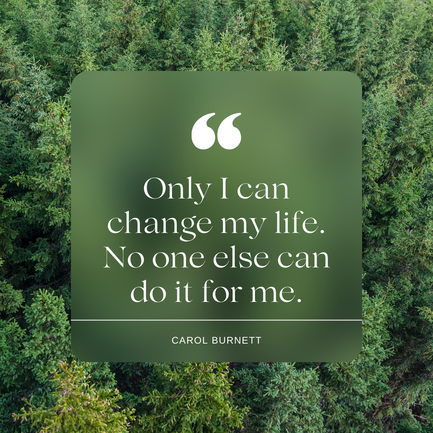|
It drives me crazy when I see other coaches brazenly state that they “Help clients get out of their own way!” I cringe every time I read that in a social media or blog post. It feels so gaslight-y (is that a word? If not, I’m making it one!) to me. As if the ONLY reason people aren’t achieving what they want is because of their own doing. It’s their fault they haven’t succeeded yet. Oh boy. As a Divorce Coach, I have clients come to me with so many roadblocks that are not their fault. Namely, abusive spouses. Mentally abusive. Physically abusive. Sexually Abusive. Financially Abusive. Emotionally Abusive. Religiously Abusive. Sometimes more than one of those at varying levels of intensity. After enough abuse of any kind, reality is skewed for the victims. They don’t know what’s real anymore. What you or I might be able to see clearly is abuse, clients may think it is their own fault because they’ve been told that for so long. Too many coaches proclaim to be the savior and continue to gaslight and build out this narrative that the client is the problem. I refuse to do that. Here are some examples so you can recognize this if you think you’re in an abusive situation but you’re just not sure what’s real anymore. Or perhaps you’re reading this to understand how someone could possibly justify divorce when their spouse seems totally normal to you? Keep in mind, abusive spouses are MASTERS of deception. They will act one way in public, even going so far as to build up and praise their spouse (because it makes them look good, after all) but at home they tell them they still look fat/are stupid/lazy/etc. -Your spouse has a brand new sound system while you haven’t purchased a new bra or underwear for yourself for the past 10 years. If only you were better at saving money right?? (that’s me being sarcastic if you can’t read through that.) (Financial Abuse) -Perhaps you are told to continue to forgive your husband AGAIN for looking at porn instead of coming to bed. It’s your lack of forgiveness that is the sin; not his for his betrayal. (Sexual AND Religious Abuse) -”Why are you so depressed? If only you would be happier when I come home, then I wouldn’t ignore you.” (Emotional Abuse) Clients come to me unsure of what’s real and what’s not. They KNOW what they want. They are already empowered to help themselves when they contact me for a free consultation. They call me to be able to divorce well. They want SO badly to keep their divorces calm and protect their children. They don’t want to waste money by hiring the wrong lawyer. They would love to co-parent well, despite the years of abuse. They want to hold their head high at the local grocery store and not be scared to bump into someone they know. They know that other people have a skewed interpretation of their marriage. They still want to protect the image of their spouse to everyone in their community. You may not understand it. They may not tell you about the abuse. But if they do, it’s important to listen. They have been so scared to share their feelings for so long. They’ve been conditioned by their spouse to think their reality is normal. XO Katie
0 Comments
"I guess I'm going to have to file, because she never will even though she threatens all the time" another client sighed to me the other day. "Our life is miserable. We only talk to figure out who's picking the kids up from baseball or who's driving to swimming. And the fighting! This just is really bad but she refuses to go to therapy with me. I don't know what else to do."
When You Have to Be "The Bad Guy (or Lady)"
How is it possible that your spouse can seem to despise just the SIGHT of you so much but they refuse to just file for divorce? It feels like they live to make you miserable. They criticize, pick fights, stonewall or straight up scream about the latest mistake you made.
But yet, they refuse to go to marriage counseling. But yet, YOU are the problem. But yet, YOU are not trying hard enough. One Word: Ego
I believe Ego is the driver for most divorces. Ego stops us from seeking marriage counseling. Ego makes us think that WE don't need therapy. Ego makes us put up appearances in public and social media as though everything is just perfect. Ego tells us that WE'RE right and everyone else is definitely wrong. Ego knows that filing for divorce will make us look bad so there's no WAY we're going to do that. Nope, we'd rather be blissfully (albeit angrily) ignorant about our state of affairs.
Then What Should I do??
Are you dealing with someone who's ego prevents them from just being nice? Are you nervous every time you hear the garage door open, knowing the energy of the home is about to shift negatively? Do you walk on eggshells every time you're around your spouse to avoid upsetting them?
If they are refusing to do marriage or personal therapy, they are never going to change. Bold of me to say? I'm okay with that. They're not. No matter WHY they are like this, if they refuse to do the inner work and put in the effort, nothing will ever change.
First, even if they refuse therapy, I encourage you to find a qualified and licensed therapist. You are going to need the emotional support. Church based therapy is okay but I always prefer a licensed therapist. Church based therapy can be a great starting point but it can come with biases. It also may turn off your partner and COULD be why they refuse to go. I haven't seen enough good come out of Church therapy to outweigh the problems I have witnessed. If that's where you're comfortable, start there to fill your Spiritual needs but also look for a licensed therapist. There are many that will do religious based counseling but with more education and training to support their practices. Second, you will need to accept that they are never going to file for divorce. They would rather live miserably than have outsiders think poorly of them. I know this is a hard pill to swallow. After all, YOU are the one who is willing to work on the marriage! YOU are the one who has been bending over backwards to make this marriage work! YOU are the one who is STILL WILLING TO FORGIVE. If only they could drop their ego.... Third, be prepared to be mentally and emotionally assaulted by them. Suddenly you will be the one that has caused the marriage to fail. Not them, of course, because they are willing to stick with you through thick and thin. Through the good and (mostly) bad. You will be the one who is going to mess up the kids with this crazy divorce idea. Remember #1 above when I said you would need the emotional support? This is a huge reason why. Beginning the Divorce Process
You're going to feel a lot like this little Norway Spruce I planted. Trying to survive with some rough elements around you. Barely hanging on. But you'll see growth. You'll find the people and professionals who will care for and tend to you. You'll regain your strength and put down new roots. Your only regret will be not having filed for divorce sooner (said by almost ALL of my clients!)
If you think you are ready to start the divorce process, let's have a 30 minute call to talk about your concerns, perceived roadblocks and next steps. Take a look at my calendar and pick a date and time that works for you. If you can't find something, send a message to me and we'll make it happen!
I recently got back from an amazing trip with my dear friend Rei. We went to Northern Napa area of California. We hiked, enjoyed plenty of wine and ate enough cheese and bread to feed a small country. I had a terribly hectic time trying to get home amidst wild storms in Texas which cancelled loads of connecting flights. Somehow I managed to get a 3.5 hour Uber from Fresno to San Francisco which I think was only possible because of lots of wishes and prayers. Although rationally I knew I was safe and my family back in Central Illinois were safe, I experienced some crazy separation anxiety. I needed to GET. HOME. NOW.
Now that I'm home and summer can officially start it feels good to fall into our slower rhythms of life. The kids sleep in a bit more, I have a little bit longer to linger over my coffee in the morning and I enjoy almost daily garden walks. One Win to Share
I successfully helped another client have a VERY fast divorce. If everyone is amicable and in agreement and mature, we can get through the entire process in only six weeks and less than $3000 in legal fees. I am very proud of how I help my clients understand the divorce process so they don't get swept up into paying un-necessary legal fees or having their emotions triggered by so called 'bulldog' attorneys. If you want a quick divorce, please get in touch with me. I'll help you avoid all of the common pitfalls of the divorce process so you and your spouse can move on with your lives with finances intact and being able to coparent if needed.
What I'm doing when I'm not working
Planting trees. Watering trees. Checking on trees. Recently I planted over 200 White Pine, Norway Spruce and Bald Cypress on our land. I manually dug for each bare root tree and have been hand watering once a week unless we get enough rain, which really hasn't been enough. I'm seeing growth though and it's so exciting! It's a lot of work but I love checking on them and seeing them put out new buds!
What I'm Reading
To say I enjoy a range of types of books would an understatement at best and what I'm currently reading is the perfect example! I just finished Finding the Mother Tree by Dr Suzanne Simard which is a science-y but beautifully written book about trees and how we can best support them while also managing forests and humans' need for wood for products. Did I cry a bit on the plane as she wove it all together with motherhood? Maybe!
Then, on the MUCH lighter side is The Marriage Sabbatical by Lian Dolan. Yes, exactly what it sounds like. I'm only about 2/3 of the way through but it's a cute, light read about a couple who decides to take a sabbatical from their marriage for a year. Honestly, as a divorce coach, I wish more people would do this before jumping to divorce! Quote I Love
"Our lives begin to end the day we become silent about the things that matter." Dr Martin Luther King
There is SO much to unpack with this one but for now, I'll connect it to marriage and divorce. How often do people give up in marriage? Not in the sense that they give up and just get divorced because honestly, that's usually a flippant thing people say that have never experienced divorce. No, I'm talking about giving up trying but also becoming complacent with a terrible marriage. Cohabitating. Living as roommates. Only talking to discuss who's driving the kids somewhere. Sleeping in separate rooms. Are you still LIVING like this???? This is not living, my friends. This is not only a terrible example of a marriage for kids but this is YOUR ONE LIFE. This is it. Is this how you want to spend it? Or maybe a better question is this a marriage you would want for your children?? No?? I had someone tell me recently that they just don't see an easy path to divorce. They're right. But they're also wildly miserable in their marriage. Yes, the path will be uncomfortable and have challenges but, especially in this person's situation, they are not insurmountable. From personal experience, going from a sad, lonely marriage through divorce to the other side was SO worth all of the challenges along the way. This is why I decided to become a divorce coach: to help my clients understand the divorce process. Need more proof? Here's a pictures from our 16th anniversary we celebrated two weeks ago. I would have never had this if I made myself silent about my first marriage. Client Review
"What a lifeline!! Katie helped me through the intense rollercoaster of one of the most complicated divorce processes ever. She has an incredible gift of staying relational and calm AND is able to be focused and factual. This is a rare find in a human! Her ability to help me stay focused on next steps despite the chaotic events of the divorce kept me grounded. She helped me fill out complicated court paperwork one step at a time. She helped me talk through and formulate my questions before I called my lawyer so I could be articulate and precise. Before I secured Katie’s services, I remember wondering if I could afford a divorce coach. The truth is, I couldn’t afford to go through my divorce alone without Katie. Highly recommended."
That's it for today! I hope your summer is off to a great start! If you think this might be the time to consider starting the divorce process, check out my calendar and pick a time that works for you! Don't see anything that works? Send a message to me and we'll figure it out!
XO Katie
Hello again! I am in peaceful Northern California for a few days with my friend Rei Hotoda. She is the Conductor for the Fresno Philharmonic. She had a break between shows and invited me to join her in Northern Napa for a quick but much needed getaway. We've hiked, ate LOTS of bread and cheese and of course, enjoyed some amazing wines.
When I travel I always meet new people and in doing so, they find out that I'm a Certified Divorce Coach. This first comes with the question, "what does a Divorce Coach do?" and is almost always followed by a horrible divorce story that a friend or loved one experienced. I don't mind listening to these stories because I know they are digesting their perspective with someone who really gets it's finally. What I am bothered by is that there is ALWAYS a villain.
How is it possible for two good people to divorce?
This question feels like the Great Misunderstanding of Divorce to me. In order for those who have not divorced to rationalize a divorce, they MUST think there is a villain. There must be someone who cheated, had an affair, 'stepped out', had a fling....whatever you want to call it. There must be abuse, surely....right??? Why else would two people divorce if not?
Believe it or not, it is possible for two wonderful people to not be able to live together FOREVER managing kid schedules, tricky, stressful budgets, job duties, fun activities, career growth, feeding the family, hobbies, friend circles, laundry, mowing and ALL the things that come with life. It's a lot just typing it all! Sometimes two wonderful people just can't do ALL those things together effectively. Sometimes it brings out the worse in both of them. Sometimes they need a different partner (or none at all) to be able to thrive at life.
We don't get training on what married life will REALLY be like for us with that partner. We have no idea what might trigger them from some unresolved childhood trauma or drive us nuts. We may not have had a good example of marriage set for us by our parents. We may have mental health issues that arise for us or our partner. There may be illnesses or deaths that cause grief so intense it alters our reality.
Of course there are marriages that break down from affairs, emotional abuse or financial stress. In the absence of those, it's important to remember there are many invisible causes of divorce. We don't have to villainize one person in the marriage in order to justify the divorce so we feel better about it. The more we can care for and support both people in a divorce, and after, the better for everyone.
When you’re thinking about separation or divorce, it is VERY overwhelming! There are the roller coaster of emotions that can range from excitement about the future to overwhelming grief and sadness for what is being lost to intense anger for the abuse and hurt. There is also the logistics of divorce. Who will take the kids to baseball? Who will pay for their health insurance? Can one of us stay in the home? Will I have to get a better job?
All of the overwhelm of divorce often causes people to just stay put in unhappy or abusive marriages. It just feels too hard to get a divorce! Other times, it causes people to impulse hire an attorney without appropriate research and not understanding the process. They get swept up in the tidal wave of the divorce process, eyes closed and holding their breath, hoping things settle down and work out. It’s enough to raise my blood pressure just typing all of this! This is where a Divorce Coach comes in. I get it. I know it feels impossible sometimes to pay someone ELSE on top of the attorney retainer! Let’s dive in about why you should hire a divorce coach to help you through the divorce process. 1. A Divorce Coach Will Help You Hire The RIGHT Attorney
Get ready because everyone from the bank teller to your Great Aunt Margaret to the high school acquaintance you bump into at Target will have an opinion on your divorce. People LOVE to tell other people how to get divorced. It usually goes like this, “OMG you HAVE to hire Todd Smith, he’s a BULLDOG! My cousin hired him and although she didn’t really like him personally, she thought he really fought for her.” *Divorce RED FLAG* You want to like your attorney. Sure it might seem silly, but you’re going to pay this person a lot of money to make a difference in major parts of the rest of your life. You want to be able to communicate with them and not think they’re jerks or have them mistreat you. 
Think of it this way, what if something goes wrong with your divorce and you need to discuss it with your attorney? Do you want them to have a respectful conversation with you or have them blow you off like you’re stupid for asking? I’ve had so many people call me that did not hire me from the get-go, begging for help because they feel like their attorney is gaslighting them! This is NOT what you want!
Also, those ‘bulldog’ attorneys are not my favorites. Honestly. They tend to be in it to line their pockets and boost their ego. They aggravate divorces to drag them out so they can go to court and look like they’re really fighting for you. I’d rather have a calm, peacebuilding attorney that helps my clients have an amicable, but fair, divorce and move on with their lives. Sure it might not feel as dramatic but that’s a GOOD thing. As a Divorce Coach, I help my clients hire the right attorney from the beginning. I coach my clients on what to look for, what questions to ask and how to make telling observations. After they meet with attorneys, we talk through their experience so they pick the best option for them based on their needs. 2. A Divorce Coach Will Help You Know What’s Real With Your Attorney
Attorneys are smart, busy and expensive. Many of them have been doing their jobs for so long, it’s like a second nature to them. They know that they are expensive and don’t want to waste their time and your money explaining every detail. While your budget may appreciate that it often can feel like you have no clue what is happening in your divorce! I just talked with someone yesterday who has contacted me WELL into their divorce (trial is set.) She doesn't think she can afford to hire me because she’s owes her attorney $9,000 and she also doesn’t want to email her attorney with questions because she knows it’s $200 for her attorney just to answer an email! She has a lot of money on the line but in the meantime, has no money to know what is happening or understand the next steps or how to best prepare because she has already spent so much with her attorney. This is the absolute worst situation to be in. I wish she had contacted me THREE years ago (yes, three!) when her divorce started. I would bet good money she would have had her divorce finalized a long time ago and not have spent thousands of dollars. She would be well into her newly established life. At this point she’s just hoping for the best.
As a divorce coach, I help my clients understand the paperwork and options from the beginning so they make the best choices within the scope of their divorce. I help them manage communication with their attorney to keep it effective not only with the information they gain but also with their budget. If things start to drag on, I help my clients either get the process going with their attorney or get a second opinion. My clients get ahead of problems so their divorces are relatively easy and dare I say, BORING. I’ve never had a client have to go to trial that I’ve worked with from the very beginning.
3. A Divorce Coach Will Save Money
I also help my clients find the right path to divorce. It’s not always necessary for both people to have a lawyer. When appropriate, we explore divorce mediation or just hiring a single attorney for both people. We talk through their current situation, the history of the relationship and the goals for their futures to determine what the best path forward is for them and their family. We take finances, living situations and emotions into consideration. There's a lot to think about and divorce is not a 'one size fits all' life event.
Focusing on the logistics of the divorce process is the best way to save money. I have clients call me, very emotional and wanting to go down divorce rabbit holes. I help pull them out and focus on what’s really at stake for them so they can take the next best step forward. So What's Next?
When facing a separation or divorce, it feels overwhelming to make one more decision tohire a divorce coach. Pausing to explore this option will be time and money well invested in your divorce process and future. You’ll be better equipped to hire the right attorney for your divorce, understand and interpret the steps along the way and save lots of money.
You can schedule a Free Consultation with me and we'll talk about your unique situation and what it would look like to work together. Even if you think you're 8 months from even wanting to file and just need information to start planning. Or perhaps you're ready to file and want to make sure you're starting your divorce in the best way possible. ~Katie
#1 - Emotions Caused By an Affair I have ZERO judgment if someone calls me and they are having an affair. Oftentimes the affair is the RESULT of a failed marriage, not the cause of one. The marriage is already irretrievably broken for a variety of reasons. Emotional Abuse, physical abuse, financial abuse, drug and alcohol addictions, and mental health issues just to name a few all have already caused the marriage to fall apart. The victim is lost, confused, lonely and desiring love and connection. When they have faced all of these abuses and someone new walks into their life that is kind and gentle with them, it’s very easy for them to connect and fall head over heels. Emotionally speaking though, a divorce is traumatic. Even (and sometimes especially!) if someone has been abused, they still care for their abuser. They don’t want to hurt them back. They want good things for them. They want to get through the divorce peacefully and calmly. Divorces bring out a lot of emotions that are important to tend to while you’re going through the divorce. If you’re swept up in an affair, it’s a rollercoaster to manage the emotions of the divorce while also juggling the emotions of a new relationship. Usually, one set of emotions has to get stuffed and ignored. Because the divorce emotions are unpleasant, it’s usually those. Victoria Mitchell, in her book, “Surviving Grief: Enduring and Learning From the Worst Days of Our Lives”, offers words of caution about moving forward and taking risks with another relationship. “I recommend waiting six to twelve months to get involved with someone new. You’ll be lonely. You’ll feel needy. You’ll be tempted. But adding another person to the mix disrupts your task of processing the grief of your lost marriage. You’re left with this work still to be done, shut down by the glow of new love. It’s also not healthy for your new relationship. In the abrupt abandonment of feelings about your divorce, much growth potential is left behind. You carry unresolved issues with you. When the time comes to venture into something new, be whole and healthy, not still wounded.” ~Victoria Mitchell If there are children involved in the divorce, it’s also important to have the emotional capacity to help them through the divorce. I’d rather see kids in a happy, divorced home than a toxic married home any day. Usually children still love their other parent even if they are abusive. They need help working through their big emotions. I always recommend to parents that they find a therapist for their children at least through the divorce and possibly beyond if needed. It gives kids a trusted sounding board to work through their emotions. Even with that, children need their parents to be emotionally available and mature for them. The kids will have big emotions and will often take these out on the parents. If parents are daydreaming about their lover and excited to get the divorce over with as fast as possible so they can move in with them, they may be less inclined to see their children’s emotions as important or valid. #2: Parental Alienation from an Affair
So what happens next? My client is trying to manage the stress of the divorce process, the butterflies and thrill of a new relationship AND children who are angry with them. This is an understandably horrible scenario to find oneself in and another reason to avoid affairs. Clients find themselves wanting to rush the process to just get it over with. They become more willing to concede to financial demands by their spouse and children. They tend to give up time with their kids because not only is time spent with them often miserable, they don’t feel like they deserve it anymore. #3 Divorce Settlement Implications of an Affair I know what I know about Divorce Coaching but I leave the legal advice for the Family Law Attorneys. Partner at Butler, Meister and Giraudo in Morton, Illinois, Attorney Kelly Giraudo shared with me: "Illinois is a no-fault state, meaning that an affair will not be a relevant factor when considering the allocation of parental responsibilities or the division of assets and debts of the marriage." At first glance, Hurray! My clients quickly interpret that their affair won’t matter and carry on with the relationship, sometimes getting TOO casual. Most likely it won’t in the sense of the final result. Where it WILL matter is in the length and amount of time it takes to get there. As soon as the opposing council finds out about an affair you need to be prepared for a massive amount of questions and paperwork known as “Request to Produce and Interrogatories”. The questions asked in these documents are required to be answered in a relatively short amount of time and they often are quite detailed. I’ve had clients have to take days off work to fulfill their responses to these requests. The requests range from additional financial disclosures to diary entries to strings of texts printed out. This is not a fun place to find yourself in the middle of the divorce. Remember, the goal is to divorce quickly, peacefully and inexpensively, while also being fair. Having this additional work added makes both attorneys' invoices jump considerably for the time needed to review and advise upon. Finding out about an affair is almost always an open door invitation for this expensive, time consuming next step. According to Chicago attorney Raiford Dalton Palmer, Partner at STG Divorce Law, P.C., "It is important to know that affairs don't matter much to courts in many states - the "why" of a divorce is not important in Illinois, for example. Parties can't even mention cause for divorce in their pleadings (other than 'irreconcilable differences'). The only impact an extramarital affair has in terms of the nuts and bolts of divorce is financial in Illinois - that is, if the relationship involves waste of marital assets, the portion owned by the other spouse can be recovered. Note that in other states, however, an affair can be a very big deal to a court - leading to a denial of alimony, unequal division of assets, et cetera. As with anything like this, consult an experienced divorce lawyer in your area for legal advice." So while it may not matter that much in impact on the settlement, it WILL matter in how long and expensive the process is to get there. Affairs are TrickyAn extramarital affair fulfills a need that many people in failing marriages desire but come with implications that aren’t necessarily legal based. It’s easy to read what the attorneys say and think it’ll be okay to go ahead with a fling. I encourage you to consider the collateral damage that comes with an affair before engaging in one, exposing it or becoming too casual about the relationship if you have not yet filed for divorce. If the affair is already out in the open, it's important to continue to walk the path of divorce with dignity and respect for your partner that you are divorcing. They are having big emotions through the process and finding out about an affair tends to make people dig in their heels and fight more out of spite and hurt feelings. ~Katie 
Starting and managing the Divorce Process is overwhelming. Doing it well takes patience, understanding and sometimes, a lot of money. This is why it’s important to know who you’ll encounter along the way to help you focus on the business side of divorce with fewer surprises and avoid unexpected divorce costs.
In this post I’ll share the different professionals involved in the divorce process and help you understand the role each of them performs.
It takes awhile to understand what each professional’s role is in the divorce process, and you don’t want to wait until you have a meeting scheduled with them to learn. That’s why I put together this easy list to help you! How Do You Make the Most of Knowing What Each of These Professionals Do?
Once you start the divorce process, it’s easy to feel like you’re getting swept away in a riptide. Without planning and understanding, it’s easy to feel like you’re just shuffled along with legal acronyms that you don't know their meaning.
By understanding who each of these divorce professionals are, you’ll have time to more effectively research what their purpose is, their track record and prepare for your time with them. Family Law Attorney
A Family Law Attorney is probably the first professional you’ll encounter in your divorce process.
Their purpose is to:
Paralegal/Legal Assistant
A good Paralegal is PRICELESS in the divorce process. A lot of clients feel frustrated that they ‘never hear from their attorney and only get to talk to the paralegal’ but a lot of times, that’s actually a good thing! A Paralegal is usually a fraction of the hourly cost of a Family Law Attorney, and more often than not, knows just as much. While they can’t practice law, they can give you guidance on the process, the paperwork and next steps. It’s a good idea to try to get your answer first from the Paralegal before contacting your attorney.
Pro Tip: Be nice to the Paralegal! Many attorneys feel very protective of their assistants. If you’re rude or disrespectful to them, your attorney will probably hear about it. Divorce Coach
A divorce coach can be hired at any point in the process but is best if brought in earlier on. They can make much more impact in saving you from unnecessary expenses by helping you focus your energies on the next best steps. Too often emotions get the best of someone who is divorcing and they dig their heels in for an unreasonable settlement. When this happens, and their STBX doesn’t agree, the process comes to a halt and MORE professionals that cost MORE money need to be called in.
A Divorce Coach cannot offer legal advice but they will help you put your divorce together. You can think of them like a Wedding Planner or a Doula. While they won’t bake your wedding cake or actually deliver your baby, they are there to make sure you know what is happening, who to hire to help you and ensure the process keeps moving forward. You can learn more about what I do as a Divorce Coach here! Mediator
When a couple is divorcing and they can’t come to an agreement fast enough on their own, with the help of their attorneys, a court ordered mediator is often hired. This mediator has been trained in accordance with Family law in your state, although they usually cannot practice law or give advice.
A mediator CAN:
1. Offer legal advice 2. Take one party's side of the other 3. Determine the best agreement without working through it with you and your spouse. Red Flag: Visits with the mediator can be frustrating. Often clients are at this point because one member of the divorcing couple has dug in their heels or an attorney has dropped the ball in negotiations. The goal of the Mediator is to UNITE but unfortunately by this point, uniting is the farthest from some people’s minds. They sometimes have irrational ideas on what they think they can get from a divorce settlement. Other times there is an emotional immaturity that prevents a unified divorce decision. FYI: The next step after this is a court case in front of a judge to decide the outcome. Using a mediator is usually a last ditch effort to work out the divorce proceedings. Going to court is expensive, time consuming and emotionally draining. GAL
This is the Guardian Ad Litem, often referred to as the GAL. The GAL’s role is to represent the children of a divorcing couple when the parents cannot come to an agreed parenting plan. The GAL is court ordered and is responsible for talking to the children as well as the parents, other family members, key people in the children’s lives, think teachers or day care providers.
Because the GAL is trying to understand a family dynamic in a short amount of time, they often ask very direct questions, which can inflame parents and make them feel like their parenting is being attacked. Pro tip: Stay calm! If you get angry or lose your temper with the GAL, that may align with what your STBX says about you and the way you parent. The GAL is there to help the children. Most parents want what is best for their children, so help the GAL reach that understanding. Approaching the GAL from a point of view of thankfulness will help you keep your emotions in check and your goals aligned. You've Got This!
The divorce process is overwhelming but if you have an understanding of who you’ll encounter, it will feel less intimidating. The professionals, while expensive, are there to help you and your spouse get through the process in the smoothest way possible. The goal is divorce well and move on with your life. While sometimes it can feel validating to want to fight back and fight hard against your ex, remember that the best way to heal is to move on with your life. It is not to get stuck in a nasty, expensive legal battle that will only drain your emotions and your finances and stop you from being your best self.
About Katie VandenBerg
Katie began as a Divorce Coach after seeing the pitfalls too many friends were falling in during their divorce process. She became a Certified Divorce Coach in 2020 and has helped numerous clients have successful, low cost and amicable divorces.
She coaches her clients 1:1 and also has created a low cost and thorough course to help women and men divorce with grace and dignity while preserving their finances. If you think you're ready to divorce but feeling stuck based on some stories you've heard, check out my guide, Top Five Divorce Myths, to see if any sound familiar! Hello again friends! I have spent the past 5 days in beautiful Door County, Wisconsin. As I type this, it’s my last morning here. I’m hanging out for a bit before I go to the Door County Rotary Club meeting this morning. They meet for breakfast, which is perfect timing for me to visit with them before I get on the road to head home. I’ve had a wonderful time here; my first time spending a few days here completely alone. It’s something I’ve wanted to do for a while now but haven’t taken the time to make it happen. It always felt selfish, and I suppose it is, but it has been just what I needed to reset and reframe some perspectives that I didn’t realize were so needed! Have you ever traveled alone and left your spouse and kids for a few days? Not to travel with friends or other family, but completely alone? How was it for you? I came up because it’s "Art Drop Off" weekend at Edgewood Orchard Galleries in Fish Creek, Wisconsin. It’s such a beautiful place! The owners, JR and Nell are just delightful and always host a super fun dinner for the artists. It was the first chance since I’ve had my work there that I’ve been able to go and I’m so glad I did! The rest of the time I spent my days mostly hiking, of course. I managed to fit NINE separate hikes in four days, not counting two lovely strolls through downtown Fish Creek and on Cottage Row. I also scheduled a massage and facial and met up with a friend for dinner. It was a very filling trip but I’m very anxious to get home to see Ben and the kids! Although I don’t live here, I’ve gotten to know people and have a few friends here. I met one for dinner last night before she moves away soon. She is coming out of a tough relationship; not a marriage but still a painful breakup. She has done a lot of self work and while she’s disappointed in the situation, she knows that it’s not working and is moving on. She also has had the amazing realization that too many people NEVER become aware of: she is the only one who can make herself happy. We are the ONLY person who can fully have control over our own happiness. Not that other people can’t bring us joy and fulfillment. I love Ben. Ben’s amazing. He works hard to be kind and helpful and make my life easier. What if I wasn’t naturally happy though? Would I be open to seeing all he does and have it be an addition to my life? Or would I nitpick his efforts? Would I focus on the things he DOESN’T do? My friend commented that she has found the amazing gift of being fully herself and if that doesn’t work for someone, then OH WELL. I am so thrilled for her! It wasn’t until I had that same perspective shift after dating for about a year post divorce that I found myself completely fulfilled and ended up meeting Ben. I firmly believe that only once we turn our thoughts inward and focus our sights on our goals and passions are we ready to be open to having someone else in our life. My friend Francie with Founding Females is a business coach for women. Her mantra is ‘build your business around your life, not your life around your business’ and I would say the same thing for relationships: Build your relationship around your life, not your life around your relationship. What are you seeking? Excitement? Joy? Love? Fulfillment? Adventure? Passion? Is it there? Do you keep looking to your spouse for it? And what happens when they can't offer what you seek? Are you explosive? Sad? Angry? Lonely? You have it inside YOU. Another quote I love that connect to this is: "We carry within us the wonders we seek around us" ~Sir Thomas Browne My first husband and I met when we were 16 and 17. Never really dated anyone else and then got married during college. That was it. We had no other relationship experience. When we got divorced I really wanted to experience dating and I’m so glad I did. I wanted to learn about myself to see what I liked and didn’t like and I didn’t waste any time. If someone displayed characteristics that reminded me of my first marriage, I was done. Don’t worry, they’re all happily married themselves now and many of them I would still consider friendly acquaintances. They just weren’t for me and I was ONLY willing to allow someone into my life that fit into my life.
But Katie, that’s so selfish! Hear me out. Because I am fulfilled, I am the best wife I can be. I’m not envious or depressed about what ‘could have been.’ I am living my best life and get to share it with Ben. Because I am fulfilled, I also want really good things for Ben too and I’m willing to help him achieve his goals. We are both better off because we know we are the only ones responsible for our own happiness. Does sharing a life with him bring me happiness? Absolutely. But it’s not the ONLY way I have in place to find happiness. I have fantastic connections through my weekly Rotary meetings. I pour energy into our kids’ classrooms. I find joy and peace in my pottery. I am fulfilled when I work with my clients. xo Katie Hello again! I can’t believe it’s been another week already. Spring has been flying by! I’m a member of our local Garden Club and we had our Season Kick Off meeting the other night. When we finished out last season, April felt so far off in the distant future and yet, here we are. My garden is POPPING and everything is so green from all the rain we’ve had mixed with unseasonably warm weather. I’m feeling a bit rushed to get a few projects in before we miss the spring planting season. One of those is a Conservation Project I’m diving into. I didn’t expect to be the caretaker for this section of Earth but life is funny that way and we’ve found ourselves with a nice piece of land not too far from where we live. It’s virtually untouched, minus pesticide pressure from surrounding farms. I have 250 Evergreen trees on order to plant in May to help provide wind and overspray protection but I need to get planting native seeds and grasses in an open field area sooner than later. I leave tomorrow for a trip to Door County. BY MYSELF!!!! WHAT!?. My mom and I are both artists at Edgewood Orchard Galleries and it’s the weekend to deliver our art and attend the annual Artist Dinner they put on. I’m driving separately and I’ll be staying with my mom and her husband for a few days but then they will leave and I plan to stay a few more days! I’ve always wanted to have a personal retreat but have never taken the time. Of course it comes with a lot of mom guilt and spouse guilt over leaving my family for that long. Ben is so gracious about it though and literally is happy for me to have a chance to get away. I still am amazed that I am married to him and how encouraging and supportive he is to me (and he's cute too!) It was NOT always like this for me. If you’ve read my “about me” section, you know I’ve been married before. It was ROUGH. We were young, yes, but our marriage wasn’t good. I never felt like I was good enough for him, mostly well, because he told me. I distinctly remember him telling me once that he “just wanted me to want to be a better person for HIM.” Um, that’s not how that works, buddy! There was also a lot of jealousy, especially once I opened my coffee shop. Like, if he wasn’t happy, I wasn’t allowed to be happy. I tried everything that I knew how to do as a 25 year old. Honestly, as a now 44 year old, I’m not sure what else I could have done! I invited him to the church I was attending because he never came with me. Nope, that wasn’t going to happen. I said, “let’s find a church to go to together.” Nope, not that either. Okay fine, let’s try marriage counseling. No, absolutely not interested in that. He was not interested in doing or changing anything to save our marriage. Once I realized that, and thankfully I recognized that pretty quickly, I knew there was no hope. Why should I continue to stay in a relationship when my partner didn’t care enough about me or us to work hard to save it? When the time came to tell him I was going to pursue divorce, he was LIVID. Of COURSE this was my fault. I was the one ‘ruining the marriage.’ Was I perfect? No. Absolutely not. I have no doubt I made mistakes and screwed things up too. But I had been willing to try to fix things with my spouse. Do I see this amongst my consults and clients? Heck. Yes. They will have begged with their spouse to go to marriage counseling. After a flat out refusal, or maybe if they’re lucky, a lukewarm attempt with a session or two, they are back in the same marriage cycle. They will have pleaded with their spouse to work together to fix their marriage, only to find themselves being the only one making the effort. Oftentimes the spouse will try for a week and then hit their limit and fall back into their old behaviors. My belief is that the offending spouse actually WANTS a divorce too but doesn’t want to be ‘The Bad Guy’ or look bad to their family, friends and co-workers by filing. They are protecting their ego by staying married. They would rather drive YOU to the point of filing so YOU can be “The Bad Guy.” I was willing to take the fall for the sake of the rest of my life. Some clients call me ready to go. They get it. This is going to be a cycle. Usually if children are involved it takes longer for them to come to that conclusion because they are concerned about their well-being. Once they acknowledge that the example of a marriage they are setting for their children is toxic and NOT one they would wish on their children, they understand that the next step must be to file for divorce. Others though, not so much. They will call me after YEARS of this cycle. YEARS of begging their spouse to attend therapy. YEARS of feeling humiliated. YEARS of being broken down and desperate. At this point, I like to call this being “Addicted to Saving your Marriage.” It becomes an obsession or addiction like gambling. They put in, figuratively speaking, thousands of dollars into their marriage to only get an occasional $10 or $20 in return. Those $10’s and $20’s spark hope. They get a small amount of attention from their spouse and think, “This is it! They GET it! We are going to make it!” only to be thrust back into the abuse cycle within a few weeks, if that. Perhaps their spouse agrees finally to attend therapy! Hurray! But then after a few sessions the spouse feels attacked (because, you know, they’re being asked to NOT be a jerk) and they refuse to return. Abuse -> Threats of Divorce -> Concession from Spouse -> Hope -> Therapy -> Defensiveness - Another Letdown -> -> -> And so it continues…
If you are in this cycle, you need to understand, this will never stop until one of you dies. I have had 82 year olds call me still in this cycle. If you have given your spouse at least two legit, valid chances to work together to fix your marriage and they have flat out refused, that needs to be your sign that they have ZERO interest in working on your relationship. I know that is painful to hear. I know this hurts. I know this is not what you want. I know you WANT your spouse to change and adjust and WANT to fix things. Not only for you but for your kids. They don’t get it. And it is NOT your job to suffer in hopes they someday have the lightbulb moment where they figure it out. Because they probably won’t. And even if they DO, by then you’ll be so worn down you won’t care anymore. Their efforts will slide off because you’re so exhausted. You won’t love them anymore. You’ll have animosity towards how many YEARS they treated you poorly. You won’t be in a place to receive their love. I know this is not what anyone wants. It’s sad and depressing. It’s not the love story you thought you had when you met them. It’s not the ‘Til Death Do We Part” that we are promised. It’s hard to see it but it’s better to get out while you’re ahead. BEFORE the animosity is too strong between you two. To divorce and move on while you two can still be civil, perhaps even gracious towards one other. Before you have an affair out of desperation for love. While you can agree to co-parent WELL together and not dig in your heels out of hatred for each other. Speaking of affairs, while I never judge my clients if they let me know they are having one, I will tell you, it makes the divorce SO much more complicated. Not only are you balancing a huge mix of emotions, you also risk your spouse finding out about your new lover. That’s not really a problem in the sense of the legal proceedings (more on that another time) but what it DOES do is it gives your spouse a target of hatred if they do find out. They can RAGE about your new lover and too often they’ll tell the kids about it. And then the kids are hurt and mad that you did this. The divorce appears like it’s happening for a frivolous reason: simply for the affair, rather than the REAL reason and that’s the years of abuse. I know you want love and to feel attractive and to feel cared for. If you can hold off on meeting someone I would encourage you to do that. It will over complicate an already stressful and complicated life event. All of this to say, I get it. I’ve been there. I’ve helped my clients through it. I’ve heard it ALL. I love watching my clients go from scared and depressed to empowered, free and happy. I hope this gives you something to think about. You are not alone in how you feel. I've been there and there are thousands of people feeling like this. Do you want this to be the rest of your life? XO Katie So, what exactly DOES a Divorce Coach do?? I get asked this all the time, especially when I meet someone new. It’s usually accompanied by nervous laughter or jokes about spouses maybe already being in touch with me. I decided to become a Certified Divorce Coach after not only going through my own divorce, but after years of helping friends and acquaintances though theirs. It got to the point where I was attending attorney meetings with them to help make sense of the process and get forward momentum. This was all done fairly casually and went well because I’m good at staying organized and helping people stay on task. At one point I had a revelation though. There are Wedding Planners that help plan a single day, why are there not Divorce planners to help manage a MUCH larger life event? So I looked into it and sure enough, there are Divorce Planners! They just generally are called Divorce Coaches, although I’ve been referred to as all sorts of things! A favorite is Divorce Counselor although I’m quick to correct. I’m not a therapist and I don’t pretend to be one. I’ve also been called a Divorce Doula which is also quite fitting since a Doula is hired to provide support through the birth of a child, but not actually deliver the child. Some people have called me a Divorce Guide or Divorce Strategist. These are all great ways to describe what I do but I prefer Divorce Coach. The biggest reason is that I am here to COACH my clients! I don’t just tell them what to do. We talk about what they need for their unique divorce journey. Every single divorce is different and each of my clients has different needs, goals and wants through the process.
I’ve worked with people who divorce with no children. They have very unique needs and emotions. I’ve worked with people who are divorcing someone who is terminally ill. I’ve coached clients who are divorcing someone who is a Serial Cheater. I’ve worked with clients who are divorcing with their own mental illness.
There are so many variables in the divorce process! Even location makes a huge difference sometimes! While I live in Central Illinois and 60% of my clients have hired me because I am a Divorce Coach in Illinois, I have a good number of clients in other states. My Certification allows me to be a Divorce Coach anywhere in the United States and it’s such an interesting part of my job to see how Divorce is similar but different across state borders. I’ve found that often the processes are the same but the terminology is slightly different. But what does it look like to work with me? After our Initial Free Consult, I have a Client Coach Agreement that needs to be completed as well as the Coaching Fee. I charge a flat rate for my services because I feel strongly that my clients who are navigating the divorce process need something in their life they can count on. I don’t ever want them to be afraid to contact me because it will cost more money! Once the Client Coach Agreement is signed and the Fee is paid, we schedule our first call or meeting. I generally work with clients over the phone but will meet in person at my office in Morton if they prefer. This first meeting often takes about an hour. We go over the different paths to divorce and determine which path they prefer based on the different options. From there, we talk about the professionals that can help them. I have a few favorite family law attorneys that I love to refer my clients to but they don’t have to use them. If my clients live somewhere where I don’t have a personal connection to a divorce lawyer, then we talk about best practices in hiring a lawyer that will work for them, and work for them well. A lot of people are intimidated by lawyers! I get it. They’re well educated, busy and expensive. I empower my clients to understand the divorce process and learn how to hire the best divorce lawyer for their situation. Once they have hired a professional, we talk about what’s next. We plan out a conversation for them to have with their spouse, especially if it’s going to be a surprise. We want this to go well! My goal for my clients is for them to have the most peaceful and gentle divorce possible. Is everyone going to be sitting around a bonfire singing Kumbaya afterward? Probably not. But if we can avoid World War III so everyone can co-parent peacefully if there are children involved and each person can get on with their life then that’s a win. From there, I like to call it a Choose Your Own Adventure! I’m with my divorce clients every step of the way. They can text me anytime (although I won’t respond if I’m sleeping of course!) But they have full access to me the entire time. I’ve never had anyone take advantage of this and I feel confident that my clients are getting the best service they can from me. We schedule longer calls when Mediation is coming up or perhaps a meeting with a GAL (Guardian Ad Litem), although very few of my clients end up in that scenario. Why? Because I help keep tension low and set expectations. In fact, I’ve only had one client end up in a GAL office, and that person didn’t communicate well with me. That’s my Number One expectation of my clients. I NEED them to tell me what is going on if I don’t know, then I can’t help. I am positive I could have kept them out of the GAL if they had updated me more along the way. I just texted with a past client yesterday. She told me that, along with a job change, she has had the greatest year she has had in ages since her divorce. She’s lived a very full life with having the chance to live in Europe even but she said her heart has never felt better. I remember when she called me and was completely torn and hurting. Depressed, stressed, angry and sad. I see pictures of her social media now and she is bright and shining and full of joy. It’s like a blanket being lifted off that you didn’t realize you were wearing once you get to the other side of a divorce. I'd love to talk with you about your needs, desires and goals for your divorce. Look at my calendar below and we'll take 30 minutes to Focus Forward on YOUR life! xo Katie Happy (almost) Easter! What a month I had! Here's a recap of my month. I did this in January and think it's fun. Let me know if you like it and I'll try to keep it up! One Win: This was an emotional, big change! Some of you may know that I started Eli’s Coffee Shop when I was 24. This had been a ‘retirement dream’ from the time I was 16. But, when I was 24, the PERFECT building for it came up for sale in Morton, Illinois and I jumped on the opportunity. At the time I was working a full time, VERY busy job as a loan officer during the mortgage boom of the early 2000’s. I was already working 50+ hours a week at that. For about 18 months I did both; my day job and also starting and running this new busy coffee shop. I was married to my first husband at the time and I firmly believe that opening Eli’s was the final straw that led to our divorce. It brought all of our struggles and issues to the surface to rear their ugly head. Needless to say, it was an incredibly stressful time but I’m still so, so thankful my 25 year old self went through those challenges. Eli’s ended up being really successful. It’s not often small businesses, let alone food based businesses, make it for more than a few years. It is HARD. Margins are low, you’re relying on lots of (usually) young employees that you need to mentor and it’s a lot of long hours. I had wonderful employees but many of them were still teenagers with big emotions and learning to do. One employee in particular, Rachel, was whip smart and although she was valedictorian of her high school class and in college, just kept coming back to work for us. By this time we had our son Finn and I was REALLY struggling to do it all. He was super active and I didn’t make enough to justify daycare, nor did I want to go that route with him. I was trying to be a stay at home mom while also running Eli’s. I was exhausted. Finally the conversation opened up between Rachel and I about her and her husband purchasing the business. This was the best case scenario. She knew the business really well after being there for so long and was motivated to take it to the next level. Over the next couple of years, they bought the business from us so I could step back. They’ve been running it now for about nine years and it’s so exciting to see it growing and thriving! This entire time though we still owned the building that the original location was in at 205 W Jefferson St in Morton. It’s just the sweetest house, built in 1860. Cozy and cute with tons of character. Last year though they approached us about purchasing the building to make some major renovations. The selling process took a super long time due to their busy schedule and banks being really backed up but finally, this March 15th, we finally closed on the sale. I was pretty emotional at the beginning when we first signed the sales contract to begin the process but over the past few months have grown very comfortable with it. It’s nice to finally have that full separation and just be able to enjoy Eli’s for what it is: a wonderful coffee shop in a small town. Eli’s changed the way Morton’s downtown looks and the entire vibe. When I decided to open it, we were definitely on the outskirts of downtown. Nobody really went down Jefferson street for any purpose. Now, it’s lined with other businesses and a new multi-use development. It’s vibrant and looks completely different. I have a lot of pride in what I did, taking that big leap and risk and working as hard as I did, but it’s nice to close that chapter and enjoy the fond memories. A Quote I’m Pondering: “What would I do if I knew I wouldn’t fail?” When I opened Eli’s I found this quote on a small, tin sign and hung it in the restroom. I felt it was so fitting. I knew that the answer for me was “open a cute coffee shop.” As I have moved on from that I have found myself asking that question again and again. I’ve done this from time to time in my life and of course did it when I decided to come a Certified Divorce Coach. It’s such a great way to align our motives. For example, if I asked myself today, “would I run a marathon if I knew I wouldn’t fail?” and I have to say, the answer is a resounding “No.” That does not interest me. “Would I climb Mount Everest if I knew I wouldn’t fail?” Again, nope. “Would I homeschool my kids if I knew I wouldn’t fail?” No. I think it’s a great question to ask ourselves to check if we are having a fleeting, random idea or if it’s a deeply rooted goal of ours. It also gets us thinking about what success, or NOT failing at a goal looks like to us. I made LOADS of mistakes with Eli’s. Hundreds. Too many to count. In the beginning I didn’t understand how it worked to use suppliers for items and I spent hours at the grocery store and running back and forth. Many times I underestimated how much some of my employees needed me to be their role model and as a substitute parent, although frankly I did not have the extra energy usually and not sure I would have been able to even if I had realized it then. But what if every time I made a mistake I gave up? What if I quit? Failure of Eli’s didn’t look like small mistakes to me because I had a strong vision in mind of what success looked like to me and I didn’t let the hiccups get in the way. I ask this same question during my free consults. “What results do you want the most?” “What does success look like to you? It’s easy to give up during the process. It’s easy to get frustrated with the small hurdles and hiccups and wonder if it was just easier to not have ripped off the proverbial band-aid in the first place. Do you have any goals or dreams nudging you? Ask yourself this question. Send a message to me. I'd love to hear about it! What I’m doing when I'm not hiking: My sister recently organized a small book club of professional women and I love the structure. I’ve been part of book clubs before but they always meet at night and usually involve a lot of wine. We’re meeting over lunch and everyone has to get back to work so the drinking will be zero or kept to a minimum I’m sure. Our first book is Happiness Falls and we actually will meet today to talk about it. I’d probably rate it a 7 on a 10 point scale. Not sure I’d recommend it out but it is captivating and I actually learned a lot about people who are non-verbal. I tried really hard to read the Sand County Almanac. I wanted to love this book. I’m a big naturalist and this book is referred to so many times by other authors and nature lovers. But I just couldn’t get into the rhythm of it. I finally stopped at about 85% and returned it. Our next book is Cloistered which I heard about on NPR. It’s the true story of a lady who joined a convent after her father died but then left after a decade or so. I’m anxious to hear about her experience with two contrasting lives! What are you reading right now? I’m always looking for good books to add to my rotation! Leave a comment and I'll check it out! Personal Note: Speaking of convents, my husband and I have started a new passion project (how’s that for a transition??) We don’t currently attend a place of worship but for a few years now I’ve been curious what it would look like to attend a different place each week and blog about it. I mentioned this to Ben around the New Year when we did our modified, joint vision board. My problem was that I hated to leave my family every Sunday morning to do this. He encouraged me to try it for a month and see how it goes, which felt attainable. A few days later though he told me he’d like to join me and wondered how I’d feel about doing it as a podcast. I had not even considered that idea because of the technology side of things but loved it! So, we now have ‘Branches of Faith’ where we visit a different place of worship each week (usually) and talk about it. We have interviewed a few church leaders and hope to do more. We’ve hit a few snags with illnesses, travel and one lost episode but love the direction we are going with this. If you check it out, let me know! And if you have a place of worship you think we should definitely visit, please send leave a comment and I’ll add it to our list! Client Review: “I am so, so thankful for a friend’s referral to Katie! I felt I had a pretty good grasp on the divorce process but did not trust my ex enough to not throw some curveballs. I hired Katie to be another set of eyes and ears, to reassure me that I was not overlooking anything. She ended up exceeding this expectation! She gently nudged and kept me on task. She suggested other options to consider when I was uncertain. She provided recommendations for great, local resources. She listened through my tears, my frustrations, and my worries! She was so easy to work with and to talk to! She has been a true blessing and calm through the end of my (marriage) storm!”
I’ve been really busy this year with new clients and I finally got my course moved over to be hosted completely on my website! I’m pretty proud of all of this because of the tech side of things and I think it’s pretty slick. My course is such a reasonable way for men and women to understand the divorce process if they need information BEFORE they make a decision to divorce or if they need a much more budget friendly way to work with me. I know a lot of times people are nervous to start the divorce process because they don’t know what’s ahead or what to expect. But it also feels scary and expensive to meet with a lawyer to ask questions. It just makes it so much more ‘official.’ Or they don’t know what to ask of the lawyer. Or they don’t have the money to even pay for a consultation. My course is only $99 and goes over EVERYTHING. That way anyone who is thinking about divorce can have a clear picture of what the divorce path looks like in a confidential, budget friendly way. Even though I’m located in Central Illinois, I still have clients all over the country. It’s so fun to see where people live that find me, and once they do, I end up with a pod of referrals (Bismarck, North Dakota, I’m looking at you!) It’s such a cool experience to then be connected to lawyers, therapists and mediators in an area that I’ve never even visited, although I'm hoping to plan a stop on a summer road trip this year! Well, that’s it for March! Thanks for reading and leave a comment to let me know what you've been up to! I always love hearing from people who read my blog! XO Katie  "I notice we are envious of people who are already doing what we are made to do. If we use our envy as a sort of arrow pointing us toward our destiny, that is a beautiful thing" ~Glennon Doyle I remember the profound envy I felt during my first marriage. We were the first of our friend group to get married but many of them were in long term relationships. There was just something different about them in the way they spoke to each other. Something different in the admiration they seemed to have for each other. There was a sense of awe for the other person, it seemed. I remember feeling so much envy for other couples who looked natural, comfortable and confident. In Love, for real. I always just felt like I was a disappointment or embarrassment to my ex husband. Like I was just in the way of his success. At first I didn’t really understand the feeling and what it was telling me. It was confusing as I was young and my husband at the time was smart, hard working, came from a good family and was a decent person in the eyes of society. So what was wrong with ME, I wondered, that I felt this? But as the failure of my marriage progressed, I realized that the envy was telling me something. It was leading me to see that what my marriage was, was not what was best for me OR for him. The envy was like a guiding light, a beacon of inspiration. I knew that if I couldn’t have THAT kind of marriage that I saw with our friends, then I didn’t want to be married. There’s a difference between envy and jealousy. Envy is the feeling of desiring something that someone else has or is. Jealousy is a protective feeling. If I were a jealous wife, I’d be feeling worried that someone else was interested in my husband, or that he was interested in another woman. If I were a jealous friend, I’d be nervous that my best friend would betray me and not invite me to an outing with other friends. Can envy be bad? Of course. If I was envious of every new car on the market and it pushed me to go into debt to always have the latest model, then it’s a toxic envy. If I was envious of my daughter’s classmates for being good at soccer so I pushed her hard into it despite her hating the sport, that would be a toxic envy. A good, motivating envy will push us to improve ourselves or our lifestyles. I’m currently envious of my husband who has somehow been able to avoid sugars since the new year. Me? Not so much. He told me the other day he’s lost 10 pounds just by doing that. Meanwhile I enjoyed a few scoops of cookie dough today while I hid from my kids and now I’m feeling chubby. I’m envious of my friend Francie who has worked so hard to understand SEO and website design and is just SO darn good at it! I’m trying but it’s hard. Motivating envy improves us and helps us rise up to the best version of ourselves, both for us and for others. Another example is my friend Leanne. She is an amazing Curriculum Director at a large public school district in our area. She works SO hard for her schools and the teachers she helps. But when she gets home, she shuts it all off and is 100% Mom to her three energetic and busy boys. I am motivated by that. I am not good at shutting everything off at home and being 100% focused on my kids but I use her example, and my envy of her abilities, to motivate me. In relationships, we can easily toe the line of dangerous envy. When our motivations are delusional, or we have expectations of perfection of OTHERS it becomes dangerous. An example of this is the idea of Prince Charming. Modern society has developed a story that young women will meet their Prince Charming. And maybe they do…when they’re 25. But what happens when Prince Charming starts balding prematurely or puts on 20 pounds because he’s working so hard to support his family he has no time to exercise anymore? Suddenly, he’s not so much Prince Charming, but he’s more like the Frog that begs for a kiss. When we start to edge into this territory we need to ask ourselves some serious questions about our priorities and values. This is the perfect time to seek out a good therapist to help work through these feelings. That being said, if Prince Charming turned Frog has also become angry, narcissistic and gaslights you, then the superficial changes are minor details and you DO have a valid case for exploring the motivating envy of your friend who has a spouse who adores and supports her. The envy I felt during my first marriage was like a veil being lifted at what a marriage should be and what it shouldn’t. Going into marriage, all we really have is our parents as examples. While my parents never fought, their marriage was one more of practicality and cohabitating. This seemed to be where I found myself in my marriage. There were also healthy amounts of jealousy, frustration and ego involved in my first marriage. This is what I didn’t see in other marriages and made me realize that I could not allow this to be the story for my life. And so, the envy pushed me through. I used that envy as my guide. Interestingly enough, I have not for one moment ever felt that envy since I met Ben. My viewpoint has changed. If I can’t have THIS marriage, then I don’t want to be married. I encourage you to not stifle your envy as something bad. If you are part of a conservative religious community, you may be told otherwise. You may be told that you need to die to your dreams, your desires, your wants, your goals and your plans. I do not subscribe to that belief structure. You may be told that envy is the work of Satan. In my opinion, this is akin to religious abuse. In the face of financial, emotional or physical abuse, this is a means of control and gaslighting you into believing your life doesn’t matter. If you need help finding a good therapist to work through any of these issues, please reach out to me. If you're local to me, I have a virtual rolodex of amazing therapists. If you're not, we can talk about what it looks like to hire one. Or, if you know that you are ready to begin thinking about filing for divorce, let’s talk. XO Katie Happy St Patrick’s Day! I always love this simple holiday. It feels like the very beginning of Spring with Easter just around the corner. I don’t have to buy gifts or plan surprises. We just get to wear green and eat corned beef. In our case, I didn’t even have to make it this year! We went to our dear friends’ home last night. The husband made it and even brined it himself! That’s some next level cooking! It was delicious and relaxing. We got really lucky with these friends; we all enjoy each other’s company. The wife (Leanne) and I are the best of friends, and her husband Andy and my husband Ben have so much in common and get along really well. Their kids and ours are similar in age. Our oldest boys met at Peoria Montessori preschool when they were 3 ½ and we’ve been inseparable ever since! I know friendships like that are super rare and I don’t take it for granted. Our family just got back from a whirlwind trip to New York City. We had another friend who is an orchestra conductor and she was invited to perform there! We are so proud of her and to think she lives in our tiny little midwestern town is just amazing! We spent four nights there and stayed in a hotel near Central park which was super convenient to almost all of the sights and activities we wanted to fit in. We ate some incredible food but luckily walked it off: 8 miles a day on average! We haven’t traveled much with our kids yet other than to Door County, Wisconsin, so it was fun to change it up and visit a place so wildly different from where we are used to. I’m eager to get back into the swing of things with my clients and normal routine. Between traveling and before that, sick kids, I feel like I haven’t gotten a full week of work. I have one more week before our kids are on Spring break so I have a lot to pack in this week! I had a client message me this week that her divorce was finalized. It took less than three months and $3,000! I can’t tell you how much I love getting messages like that! Considering parenting plans, divisions of assets and all the emotions, these are such great success stories. What’s even better, is she did it without cutting corners. She had an attorney. She went through the process thoughtfully and carefully. But she was able to do it without diving into the drama that can seem to want to seep into the divorce process.
Clients often ask me, usually at the very beginning when emotions are super high, about the trial that they believe will inevitably ensue. I usually giggle because it’s such a common question and also such a rare occurrence for my clients. I’ve only had one client end up in trial and they had hired their lawyer before they hired me. The questions are pretty funny now that I have been a Certified Divorce Coach for over four years. “Is the divorce trial open to the public?” “Do I need to have witnesses about how my husband treated me?” “Can I print off text messages from my wife to show the judge how awful she was?” HOLD ON. Let’s slow down a bit. This is where I love to talk about how Real Divorce is not TV Divorce. This is not Judge Judy. It’s honestly pretty rare that a divorce ends up at trial. If your divorce ends up in trial, someone is being completely unreasonable and/or has an attorney who is terrible. This could be either party. You might be totally level headed with a calm, intelligent, emotionally responsive attorney but your spouse could have hired the devil’s brother for their attorney. There are so many steps that happen BEFORE even considering a trial. Also, there are a lot of CMC’s (case management conferences) which a lot of people THINK are trials. These are not trials. These are chances for the judge to hear how the divorce process is going and to help move everyone along. It also helps the divorce court judge to know if someone IS being unreasonable and call them or their attorney out for it. This is also often when a court ordered mediator or GAL (guardian ad litem) will be ordered. While I’d love for all of my clients to avoid even getting to those steps, and they often do, it’s not necessarily a bad thing. Mediators and GALs can help bring reason and logic to the table when it feels like all is lost. Yes, I know there are some terrible mediators and GALs. I know they don’t always agree with us. I know there are some that really seem to take sides. But I think the majority are good and are trying to help everyone move forward. It’s hard in the beginning for people to see this, but by working with me, I often can coach both my client and their spouses by simply working with my client. But how?? No, I’m not a mediator. And no, I don’t talk to my client’s spouses. I help my clients rise up. We talk through their relationship. What motivates them and their spouse? What triggers each of them? What ways do they work well together? What are hot buttons to avoid? Working through this we create a strategy to help them invite their spouse to work TOGETHER on the divorce. What actions can be taken so both people ‘win’ when it’s all over? What are everyone’s goals for the future? And if you DO end up in mediation or with a GAL, I coach you on how to make the most of those opportunities and how to not screw it up! When we do this, AND my clients take effective action, we avoid the trial stage. My clients get through their divorce well, inexpensively and have a positive co-parenting relationship with their ex. I love this. Nothing makes me happier than knowing my clients go through one of the worst life experiences with grace and dignity, without spending a fortune. XO Katie  Well, Hello again! I think our family is FINALLY done passing sickness around. Have you had to deal with that too? I feel like someone has been sick since the New Year and I’m glad we’re on the other side of it (hopefully!) We have some exciting things planned for the next couple of weeks that I’ll share about more once they’re complete. For now I’m working hard to get ahead on some projects. I'm also excited to see signs of Spring in my garden again. Gardening is one of my favorite self-indulgences and best therapy in my opinion! You may remember last fall I launched my divorce course “Trail Guide to Divorcing with Dignity.” It was a massive undertaking! I’m so glad to have it out there in the universe for anyone who wants a quick, straightforward and inexpensive guide to the divorce process. It’s perfect for someone who needs to divorce on a budget especially! I cover all of the topics that you could possibly need with the exception of how to talk to your spouse about divorce. I hope to record a video on that topic soon that not only will be added to the course, but available for anyone who needs it. I’m thinking about hosting it on YouTube with a link from my website. All of this tech side of running a business is not normally in my wheelhouse but I think I’m getting better at it! Up until now I’ve hosted my course on Thinkific but I’m making the transition to host it privately. If you have already purchased it on Thinkific, or still want to, you'll still have full access to it wherever it gets transitioned to. It will either be passcoded on my website or it will be a Google Folder download. I’d love any suggestions you might have on that for me! I’ve also been considering creating a men’s divorce support group or workshop just to help men through the divorce process. The majority of my clients are women and personally I think it’s because men sometimes have trouble asking for help. The men that do work with me are amazing! La creme de la creme of gentlemen! They are men who are empathetic, want the best for their wives and kids, work hard and have a goal to keep improving themselves. I know there are more guys like that out there and I hope to reach them. I think so often men feel alone during divorce. Divorce brings about a lot of shame for men and embarrassment. They put their head down and pretend it’s not happening. They leave it all for their attorney to manage when they really can take a much more proactive approach to divorce. I love working with men who want to divorce well so they can be empowered to do so! I think getting a focused support group together just for those men would be amazing and powerful. And speaking of that, I’d love to talk a bit about how to not take sides during a divorce. We’ve all been there. We have a couple where each person is friends with both us and our partner. They suddenly announce they are divorcing and we feel caught in between. More often than not, we tend to back away and try to not get involved. In doing so, we alienate them when they need us the most. It feels impossible, doesn’t it? How can we support our friends who are divorcing while also not taking sides? It's so easy to fall into #teamwife and #teamhusband squads as our friends divorce, but I assure you, you do not know the whole story. You're getting a washed down version based on the perception of the spouse to whom you are closest. Meanwhile, your spouse might very well be getting a completely DIFFERENT version from the other partner! Don’t be surprised if this causes arguments between the two of you even! I can speak to this from two angles: someone who has been divorced (and witnessed the friend migration) and someone who has had friends and acquaintances divorce. From my first perspective, it's so painful to come off of losing your spouse, your in-laws, your dreamed-of future, your home and now....your friends have left too??? I distinctly remember the feeling that many friends and even some of my extended family took the ‘side’ of my ex-husband. All they knew was that I had filed for divorce from him and that was enough to give the benefit of the doubt that he was the victim. Not only was I navigating a painful, traumatic divorce, I was having to find a new set of friends that I could trust and enjoy spending time with. I felt like I had to prove my worthiness to people that knew me. That I had to explain myself. That I was constantly being judged. All while grieving what I had lost. I was exhausted and emotionally drained. From my second perspective, if we have friends that are going through a divorce, I still actively have to remind myself their divorce is not my story and I don't know what their lives were really like. Sure, I knew them both and we enjoyed their company. Of those that have had children, they both seemed like good parents. They were always polite to each other. So how could they possibly be getting a divorce??? WHO is at fault???? As humans we often need to find fault to justify an action that bothers us. Surely someone must have messed up. We feel uncomfortable at other people’s hardships and struggles and it helps us manage our discomfort to place blame on someone or something, whether it’s valid or not. It helps us sleep at night and be okay. But. We need to stop doing that. Please be nice. In your mind you can disagree with how you THINK (yes, emphasis on ‘think’) they behaved in the marriage (remember, you weren't there!) but you can still be kind. Please still make room for them at the table. Literally, invite them to sit with you. Please still talk to them at school pickup. Please still invite them over when it's their weekend to have the kids. Especially invite them over when it’s their weekend WITHOUT the kids. Please still offer them encouragement and acceptance. From their perspective, they are going through something equally hard as the spouse you are closer to. The more well loved, supported and cared for each person going through a divorce feels, the better for the entire family. When someone going through a divorce feels supported by their friends and family they often are more willing to amicably divorce and move on with their lives. They’re not as fearful of the future. They don’t dig their heels in as much to make life difficult for their ex-spouse because they have a more positive outlook on their future. You aren’t being unfaithful to your friend by being kind to their STBX. You’re helping support them so they can be the best version of themselves for your friend and any children they have. XO Katie  I’ve been a Certified Divorce Coach for over four years now and I STILL cringe when someone says they “want to hire a bulldog attorney” or “I need an attorney that is a SHARK!” No. You don’t. I love talking my clients off this ledge and helping them see that in the end, they are glad they chose a more peaceful route. Divorce is too often portrayed as a battleground, with bitter disputes and emotional turmoil. I like to call it “TV Divorce.” But really, it doesn't have to be that way. In recent years, the concept of amicable divorce has gained traction, offering couples a more peaceful and collaborative way to end their marriage. So let’s talk about and explore what it means to divorce amicably, the benefits it offers, and practical tips for navigating this journey with grace and respect. Understanding Amicable Divorce: Amicable divorce is a process where separating couples strive to dissolve their marriage with minimal conflict and animosity. It involves open communication, cooperation, and mutual respect. Instead of viewing each other as adversaries, spouses approach the divorce as partners in a shared goal: to end the marriage in a way that is fair, respectful, and beneficial for both parties, especially if there are children involved. Benefits of Amicable Divorce: 1. Emotional Well-being: Amicable divorce prioritizes emotional well-being by reducing stress, anxiety, and hostility. Instead of dwelling on grievances and fueling resentment, couples focus on finding constructive solutions and moving forward with their lives. 2. Cost-effectiveness: Traditional divorces can be financially draining due to legal fees, court costs, and prolonged disputes. Amicable divorce tends to be more cost-effective since it minimizes legal battles and allows couples to reach agreements outside of court. 3. Preservation of Relationships: Amicable divorce aims to preserve positive relationships, especially when there are children involved. By maintaining civility and cooperation, parents can continue to co-parent effectively and support their children's well-being. 4. Control and Autonomy: Rather than leaving critical decisions in the hands of a judge, amicable divorce empowers couples to retain control over the outcome. They have the flexibility to negotiate terms that are tailored to their unique circumstances and priorities. 5. Faster Resolution: Resolving issues amicably can expedite the divorce process, allowing couples to move on with their lives sooner rather than later. This can be particularly beneficial for those eager to start anew and minimize disruptions to their daily lives. Tips for Achieving an Amicable Divorce: 1. Prioritize Communication: Effective communication is essential for navigating an amicable divorce. Keep lines of communication open, express your needs and concerns honestly, and listen attentively to your spouse's perspective. Avoiding blame and practicing active listening can foster understanding and cooperation. 2. Focus on the Big Picture: During divorce negotiations, it's easy to get caught up in minor details or past grievances. Instead, focus on the bigger picture and long-term goals. Ask yourself what matters most in the grand scheme of things and be willing to compromise on less significant issues. 3. Seek Professional Guidance: While amicable divorce emphasizes cooperation, it's still advisable to seek professional guidance from a divorce coach, mediator, lawyer, and therapists. These professionals can provide valuable insights, facilitate negotiations, and ensure that your rights and interests are protected throughout the process. 4. Keep Children's Interests in Mind: If children are involved, prioritize their well-being and minimize the impact of the divorce on their lives. Maintain a united front as co-parents, encourage open communication with your children, and reassure them of your love and support. 5. Practice Self-care: Divorce can be emotionally taxing, so prioritize self-care throughout the process. Take time to rest, engage in activities that bring you joy, and seek support from friends, family, or support groups. Prioritizing your mental and emotional well-being will enable you to navigate the divorce process more effectively. 6. Be Flexible and Open-minded: Flexibility is key to reaching mutually beneficial agreements. Be willing to consider alternative solutions, adapt to changing circumstances, and approach negotiations with an open mind. Remember that compromise is often necessary to achieve a satisfactory outcome for both parties. 7. Focus on the Future: While it's natural to dwell on the past during a divorce, it's essential to focus on the future. Set realistic goals, envision the life you want to build post-divorce, and take proactive steps towards realizing your aspirations. By focusing on the possibilities that lie ahead, you can approach the divorce process with optimism and resilience. Divorce is undoubtedly a challenging and emotional experience, but it doesn't have to always mean there will be conflict and acrimony. Amicable divorce offers couples a more peaceful and collaborative alternative, allowing them to dissolve their marriage with dignity, respect, and mutual understanding. By prioritizing communication, cooperation, and compromise, couples can navigate the divorce process with grace and emerge ready to embrace the next chapter of their lives. I'd love to help you work through this process and be your Trail Guide along the way! Send a message to me to learn more! xo Kate  Going through a divorce in a Small Town is like.... Amiright? Been There, Done That. One question I get when I first talk with a potential client that still surprises me is "Do you keep our conversations confidential? Is Divorce Coaching confidential?” YES. 10000% YES. I get it. I make my life in Small Town, USA (AKA Peoria, Illinois.) Everyone knows everyone and if they don't, they know someone else who does. Considering that I live in Central Illinois, this question shouldn't surprise me…yet it always does. It surprises me because of how seriously I take your confidentiality and trust in me. I honor your privacy with the greatest intentionality. In my mind, privacy comes first and the process comes next. When you work with me I have the policy that I will only acknowledge, if I'm even asked, that "I know of you" if your name happens to come up in conversation. If I see you in public I'll wave back or say "Hi" ONLY if you greet me first. I even go so far as to only scribble basic notes without your name attached to anything. I file them where I can refer back but no one else could ever decipher and connect them to you. (Also for the record, my husband who formerly taught middle school English tells me my handwriting is worse than a 7th grade boy's, so there's that factor too). I have no doubt you already have enough unwanted onlookers. My promise to you, as your Certified Divorce Coach, is that I will do everything in my power to protect your privacy. Personally speaking, I remember how it was during my divorce. I remember that I had a trip planned to visit a college friend and his new girlfriend. The friend had been a mutual friend of my ex-husband’s and mine, but I had stayed more in touch with him. It was NOT a romantic relationship in the slightest. More of a ‘he’s kind of like a lovable but sometimes annoying older brother.” I needed a vacation. Remember, I was working 50-60 hour weeks at my job as a mortgage loan officer at a local bank during the wildly busy mortgage boom of the early 2000’s. I also was opening my new coffee shop, Eli’s Coffee Shop, in Morton, Il at the time. I was stressed, overworked and desperately needed a vacation. This seemed perfect. Money was tight for me after the divorce so I could stay with him and his girlfriend for free and was really excited to finally have something planned. I went on the trip and enjoyed myself. I met some of their friends, relaxed and had a nice time away. I went home rejuvenated and ready to get back to work. And then I heard the rumor. Or rather, RUMORS. Plural. The rumor was “Katie flew back to Colorado to reignite an old relationship.” “Katie tried to see if there was anything between her and their friend but he turned her down and she came home disappointed.” “Katie came home from Colorado rejected.” WHAT. How did that even happen? I think I know how it happened and someone near and dear to me was in the middle of it. It involved a local Bible study, a relative and a connection to my ex husband’s new girlfriend’s mom (say that 10 times fast!) Essentially, a recipe for disaster in the divorce world. I was stung by the unfairness of this group of ladies who were gossiping about me. The ultimate game of telephone as adults. I knew then and there that I never wanted to be part of something like that. Another scenario I was out with a group of ladies. I really only knew one of them. The rest were her extended friends. At one point it came up that I was going through a divorce. One of the ladies was horrified, even though we had just met. She spent the next 20 minutes lecturing me on why I should NOT get a divorce and why ‘you should try harder to save your marriage.’ I had never met this woman before in my life and she knew nothing about my marriage. But she had all the opinions. It’s a lot, you guys. I’ve lived it and I know what you’re worried about going through. I pride myself on confidentially helping my clients understand the divorce process. The last thing anyone needs is one more person to gossip about them and spread false rumors. XO Kate  Valentine’s Day 2024 A lot of us have a Love-Hate Relationship with Valentine’s Day. While I’m happy to, heck I even ENJOY, showing my love to my kids and husband on Valentine’s Day, I don’t love the marketing behind it. I don’t love that the showing of love is EXPECTED and is marketed to be done in a certain way or else it ‘doesn’t count.’ I distinctly remember going through my divorce while I worked as a loan officer at a small local bank outside of Peoria, Illinois. All day long there was a parade of flowers being delivered to my female co-workers. Every time a different florist delivery driver stopped in, all the ladies excitedly stood up to look over their cubicle walls to see if there was a delivery for them. One lady even had a singing telegram!? Okay…I mean, that was a little much. And weird. She just stood there awkwardly while we all stared at her and she was sung to by the troupe. That part certainly didn’t make me feel envious! Notwithstanding the singing telegram, I remember having a pit in my stomach. Everyone knew what I was going though. NONE of those flowers were going to be for me and we all knew it. I worked hard to show happiness for my friends and co-workers as they beamed with pride. I hope I did a good enough job. They were not trying to rub it in my face (at least I don’t think they were!) but it still hurt my feelings. It also felt like my divorce stood out extra that day. Like I was wearing the proverbial Scarlet Letter. What was wrong with ME that I didn’t have that love? That no one cared about me enough to send flowers? That I didn’t have dinner reservations with someone special? That I didn’t have a new piece of jewelry to show off and get the oohh's and aahh's over that day? Nothing. Nothing was wrong with me. Although I didn’t realize it then. It just took me awhile to figure it out. A day filled with Facebook and Instagram posts by friends receiving the coveted dozen red roses, flowers showing up for co-workers who blush and giggle that "He remembered!" and images on television of handsome men suddenly latching a new diamond pendant around their significant other's neck when she is not expecting it is not an accurate gauge of how lovable we are. Brace yourselves, my friends. No matter the stage of separation or divorce that you are in you may feel triggered multiple times today. You may not even be at that stage but in a marriage struggling to hang on by a thread of hope. You might be barely able to make it through dinner without a fight or tears. The word ‘divorce’ maybe has not even been uttered. But if there is no romantic love in your life to celebrate, you may feel just as empty and lonely. Showmanship on the holiday that marketers of flowers, cars, jewelry and chocolates live for is not a mutually exclusive sign of your worthiness of love (or a strong marriage for that matter.) Just because you may not be in a wildly loving relationship TODAY does not mean you are incapable of receiving or giving love. Just because you do not receive a dozen red roses does not mean you are less worthy of love than your cubicle partner. There are so many ways on this planet to love so many different people or creatures. If you think you might be triggered today, start a list of how you give and receive love, and to whom. I’ve found it’s much better to have a list ready to go to refer to when I am navigating a stressful life event. A lot of times we don’t have the energy in those specific moments to come up with ways to love or good deeds or whatever it is we need to fill our cups. Here's a few to start: Feeding the birds Buy a special treat for your pup Pick up doughnuts for your kids Schedule coffee with your favorite aunt Make a phone call to your grandmother Bake cookies for a neighbor Plant a tree Buy a new houseplant Pick up garbage in your neighborhood Welcome hugs from your friends Write love letters to your kids Journal to yourself Call your parents Volunteer at the local Crisis Nursery or Homeless Shelter Sign up to be a CASA for a local child Donate blood at the American Red Cross What would you add? XO Katie  "I will never have this version of me again, let me slow down and be with her" Rupi Kaur Going through a divorce, like any kind of grief, can often make us wish it away sooner than later. We do this in any variety of ways. Drinking too much. Dating too soon. Stuffing our emotions. Exercising too much. Scrolling all night. Netflix binge, again. This moment. You feel like it will never end. You feel like you will never get through it. But it will. And you will. Be gentle with yourself. With this moment. With this challenge. Slow down. Don't rush the process. (Don't drag your feet either but that's another post for another day.) After all, this is the only time you get to be this version of you. So who is she when she goes through grief? What does she need? What can help empower her? What will rebuild her life? What goals or desires has she put on the back burner for FAR too long that maybe NOW is the time to explore? What can she learn from this process to help her in the future? In my experience as a divorce coach, I've noticed that a lot of people start dating far too soon. I get it. There often is that new person that is the final catalyst for a divorce that should have happened YEARS ago. Or maybe you finally feel desired again. Perhaps you haven't felt attractive in who knows HOW long and finally someone looks at you like *that*. I get it. I know. Believe me. I REALLY know. But. Suddenly you're not just juggling the emotions of an ending marriage. Of a divorce. Of your children who also are feeling big emotions. Of financial stress. Of legal paperwork. Of court dates. Of social changes. Of awkward conversations. Of lost friend circles. Of family drama. But also you're navigating the topsy-turvy emotions of a new relationship. Which really, is enough in and of itself. There's only so much our souls can handle and this is too much. If you don't allow yourself to properly work through the grief, anger, sadness and yes, even excitement of the divorce process, those emotions about your ex will continuously pop up through your life. You're doing your future self a huge disservice by not letting those flow freely. You're also not in the best place to be starting a new relationship. You're seeking a thrill. You want to feel desired. Which means you just might not have the best lens of personality judgement on. I have had many clients come to me while we are not only working through their divorce challenges only to ask my help with an argument they've had with their new lover! Of course I will do this but this is such a stretch for anyone's emotional capacity, even my most emotionally intelligent clients. The last thing you want to do is go from the frying pan into the fryer for lack of better analogy. I remember my mom joking that when you're dating someone new, you really need to give them three months because often that's when their heads begin spinning and they start spewing green vomit. Three months is usually when things start to get weird in a relationship. Or the red flags start showing at the very least. She wasn't wrong. If we get swept up too fast and don't give the thrill of the new relationship time to show it's true colors we can find ourselves in a WORSE situation than we were before. Slow down, please. Pause and take a breath. Get outside. Take a walk. Take your kids to the park. Go to the library and get a new book. Join a service club (my personal favorite is Rotary!) Take an art class. Sign up for a yoga series. Try out a new church. Learn or refresh a language. Start a garden. One of my favorite bits of life magic is when I've tried something new only to have it turn into something I never would have expected. I would encourage you to be brave and try something new. Just for you. That's not toxic. That will help you GROW and EXPAND. That's not just to mask emotions but to help you soak up and round out who you really are RIGHT NOW. A wonderful bonus is that you will meet new people who are also interested in those things too. If you lost friends during your divorce, this is a great way to find a social circle of kindred spirits. My personal story: I dated pretty quickly post divorce. I was only 25 and had no kids. I remember finally getting SO fed up with dating (you know...the whole spewing green vomit thing???) I finally heeded my own advice that I am now giving and PAUSED. I stopped. I decided I was only going to focus on me and my well being. I poured my energy into my fledgling business, Eli's Coffee Shop. I moved into the 2nd floor tiny studio apartment. I worked 16 hour days, almost 7 days a week. I quit my day job as a loan officer. I was ALL IN for me. I met new people. Some of my best friends now were my customers then. I joined the local Chamber of Commerce and developed a network of business partners that still support me to this day. But best of all?? My husband walked in there. He was the cute new 7th grade L.A. teacher in town. He would come in and order a green tea and grade papers. He liked to shoot photography in the summer months and one day sent a message to me on MySpace...yes the MySpace days! He asked if he could hang his photos there. We both were simply pursuing our passions and working towards our dreams. We were both well out of relationships by the time we met, his heart broken earlier that year too. We were focusing on ourselves and mending our souls. By doing so we were able to notice whom we really were and what we really desired. Somehow the first month of 2024 is almost over! I've been wildly and joyfully busy in all areas of my life! It took a little bit to get a routine back in place with what felt like too many snow and ice days keeping our kids home from school, but this week, FINALLY, I should be able to get five straight work days! I thought it would be fun to share five topics with you all to connect on a more personal level. Let me know what you think! 1. One Win: I’ve been stepping back from social media and working to connect more on my website, in person, my email list and blog. I have clients all over the country, but I had someone reach out to me from the farthest state yet….Alaska! They live in a small village that is only accessible by plane to boot. Amazing! Divorce knows no boundaries. It will definitely be an interesting experience taking into consideration the remoteness of their location. 2. A quote I'm pondering that I think aligns with the moment that it all 'clicks' for my clients: I'm right there with them every step of the way, but they have to be the ones to make the decision to divorce. Often my clarification of the process helps with that part but I still cannot tell them what to do.
3. What I'm reading: Catherine the Great: Portrait of a Woman. I'm about 4/5 of the way through and it reads like a novel and history book in one. Sometimes biographies can be bland but this writer does a marvelous job of keeping the reader intrigued. 4. One personal note: My husband and I started a podcast! I have always been fascinated with religion, history and sociology. We are visiting a different house of worship every week and then blogging and podcasting about it. This isn't a debate about religion or an attempt to sway or convert. It's a personal exploration of faith across all world religions. If you find that sort of thing interesting I hope you'll check it out! 5. One review from a client: "What a lifeline!! Katie helped me through the intense rollercoaster of one of the most complicated divorce processes ever. She has an incredible gift of staying relational and calm AND is able to be focused and factual. This is a rare find in a human! Her ability to help me stay focused on next steps despite the chaotic events of the divorce kept me grounded. She helped me fill out complicated court paperwork one step at a time. She helped me talk through and formulate my questions before I called my lawyer so I could be articulate and precise. Before I secured Katie’s services, I remember wondering if I could afford a divorce coach. The truth is, I couldn’t afford to go through my divorce alone without Katie. Highly recommended." This was an amazing client who started out quite timid and constantly worried about her future. To see her transformation into an empowered and confident women was such a gift to me! xo Katie “Life is hard—not because we’re doing it wrong, just because it’s hard.” Glennon Doyle
As my first marriage crumbled, I remember wondering why this was so hard? I thought I had made the right choice in my first husband. I imagine he felt the same. We were both intelligent, hard working, frugal and almost always did the right thing. We were good people; shouldn't this be easy? Except that we got married and it wasn't working. Divorce was hard but NOT divorcing would have been exponentially harder. Once I accepted it was OKAY for two good people to not be good TOGETHER the idea of my divorce became a lot easier to handle. Once that I accepted that our hard working personalities were not a determination of marital success it became easier to continue on a path of personal success as I learned how to be single. Once I accepted that there was nothing wrong with my ability to love just because I was divorced, it became a lot easier to move forward with my life. Was the divorce hard? Yes. So hard. But we weren't doing anything wrong. In fact, I think we did life just right by making the choice we did. Because what if we hadn't? Would we have had children only to divorce a decade and a half later once life with teenagers pushed us over the brink? Would I have had the energy to do what I do now with my gallery, ceramic art and property management? I'm sure I wouldn't have the idea to be a divorce coach. Or would I have fallen into a slump, unenergetic to do anything except survived each day? That decision is hard. Toggling is harder. Not divorcing is harder. So many clients, once their divorce is finalized, tell me how mad they are at themselves that they haven't done this SOONER. That it feels like a massive weight has been lifted. That life seems so much brighter now. You can read more about what they have to say HERE. Have you decided? Or maybe you just need a little bit of clarity to make that final decision. Maybe you need to understand the timing or logistics of the divorce process, let's have a call. 30 minutes to clarity. XO Katie  Hello again! It’s been absolutely FREEZING here in Central Illinois the past week. Sub-zero (by a lot) wind chills. We have hardly left the house and if we do it’s only to run from one warm place to the next as fast as we can. Today reached a balmy 24 with abundant sunshine and it makes me so happy! We’re at that time of the year where the divorce filings are also abundant. Everyone who wanted to get through the holidays is doing it now. But even those who have waited for the perfect timing, knowing their divorce was inevitable, still feel all the emotions. Sadness, anger, jealousy, envy on one end to excited, anxious, and relieved! One storyline that seems to cause the most frustration with my clients though is that of the spouse who has borne the brunt of emotional abuse. The spouse whose life has been made miserable. The spouse who has been told they are worthless. The spouse who has been made to feel like they can never do ANYTHING right. But yet, their partner never files for divorce. “Why are they making ME do it??” they ask me. “They can’t stand me so much, but yet, they won’t file.” “My spouse hasn’t touched me in almost a decade but yet they say they won’t file because they made a vow to me.” “I’ve asked them to go to marriage counseling so we can work on our issues but they refuse!” “Now that I’ve told them I want a divorce, they’re blaming ME for the downfall of the marriage!” Ay yi yi. This is all too common. Insanely common. I can *almost* finish the story when I hear someone start to explain to me what their marriage is like and why they are hiring me as their divorce coach. Now, I’m not a therapist, but this sounds like some major anger and control issues to me! Spouse A, the offender, wants things their way and their way only. Spouse B tries for YEARS to make it work. The behavior of Spouse A ebbs and flows *just* enough, and after all, they never actually HIT Spouse A, so it can’t be *that* bad, right?? And of course, there are usually children involved and Spouse B hopes they can tough it out until the kids are older. Suddenly though, Spouse A starts treating the kids like they’ve been treating their spouse. Spouse B realizes they’ve had enough. Spouse B realizes this doesn’t just affect them, it’s going to affect the children. Spouse B suggest marriage counseling. Spouse A flat out refuses, OR shows up to one counseling session in the best of spirits and twists the stories to make Spouse A look (and feel) a little crazy. Do I need to go on? There are so many examples and versions of this same story. If this is what you are experiencing, you are in good company (unfortunately). This is far too common. The good news is that you’ll eventually be divorced and it will be like a 180 pound dark veil has been lifted off you that’s been covering your entire body for as long as you can remember. Suddenly, you’ll wonder (and just a forewarning…maybe be a little mad at yourself) for not doing it sooner. This tactic is common among gas lighters, narcissists and those that love to manipulate the story to make themselves look good and stay in control. It’s not going to be smooth sailing to get out of that situation. They do everything they can to make you feel bad. They’ll do what they can to make you miserable. They don’t think you’ll actually do it. And suddenly, one day, you do. XO Katie Happy New Year! Our kids are still out of school here in Central Illinois, so I haven’t quite hit my New Year’s groove yet but it’s also nice to have a few more slow days before the school and activity schedules start back up.
My husband and I spent time one evening last week working on a Goal Board. Not quite a vision board but still a visual representation of what we want in our life. We picked about seven different aspects of life like Financial, Work/Career or Relationships and then each declared goals for those categories. Some goals are static, meaning when we achieve them we can cross them off. Others are dynamic, meaning they are habits we want to form. It was nice to come to some similar goals but also see what each other is shooting for so we can support when needed.One of my big static goals is I want to be able to do five hanging pull-ups at the gym. I can barely hang right now. Let’s do this! I’ve been thinking though too about BAD habits that we all have that we want to break. I’ve been working on less social media time. This means less posts for my Focused Forward page but if it comes at the benefit of my mental health and more time with my kids, I’m okay with that! Interestingly, I have noticed a trend with some people in what I would consider a bad habit and that’s an addiction to trying to save a marriage that is unsalvageable. It’s not unlike gambling. The marriage is filled with toxic attitudes and behaviors and is generally negative in spirit, but Every So Often there’s a glimmer of positivity. It’s like when the slot machines let you win JUST enough to convince you that the next pull might be the big one. But of course, it isn’t. So you keep pulling (figuratively, of course) to keep your marriage together. Keep pulling to find that positive glimmer again. And you get JUST to the point where you are ready to quit and BAM there it is. A smile when you least expected it. Hand-holding. Flowers on the counter when you come home. A cuddle in bed when you haven’t touched in five months. And just like that you’re thrust back into the cycle. Like any addiction, you have to own your healing. You have to take charge. You have to WANT to get better. No one can force you to do it. No one will ever come to save you. You have to save yourself by taking that first empowered step. What does that look like? That looks like saying “Enough is Enough.” There’s the phrase “stop throwing good money after bad” and I think that applies to emotions too. Stop throwing your good emotions, your good energy, your good time, after bad. Does this sound familiar to you? Have you lived this reality? I’d love to hear from you! And if you need help with that first empowered step, let’s get started with clarity and confidence. Hello! I’m sitting down to write this just a couple of days after Christmas and a few days before New Year’s Eve. That weird time where we forget what day it is if we don’t look at a calendar.
I also know it’s a very uncomfortable time if you’re considering divorce. So many emotions as you work through the holidays. Thoughts vary from “This could be the last time I spend Christmas with my spouse’s family” to “What will Christmas morning look like next year if I move forward with filing?” to “This is so stressful and I can’t get out of here fast enough!” You may be excited for the changes, sad about what’s to come, angry that you’ve been forced to make this decision but more likely all of those emotions! The holidays bring added stress even in the best of marriages, but add hurt feelings, being ignored, gaslighting and arguments it’s enough to make someone feel crazy. Isn’t it interesting that we often don’t want to leave our marriages so we don’t feel lonely but yet being in a dysfunctional, toxic marriage is one of the loneliest places to be? If you’re having those feelings, believe me, I COMPLETELY understand. I’ve had those feelings too. Especially with social media where we see everyone else’s ‘highlight reel’ of their ‘perfect’ lives. If you’re not sure what to do about your marriage, I always encourage people to look ahead. Ask their future self what they need. Sound too “woo-woo-ey”? Let me explain. You want to do a Future Self Meditation. I walk clients through it in my course in greater detail but I’ll explain the basics here. You want to picture your IDEAL self ahead a number of years. You pick. Depending on your age it could be 5 years if you’re older or 30 years if you’re younger. Where are you? What kind of home do you have? Does anyone share the space with you (Human or furry!) What type of clothes do you wear and how do you decorate your space? What are your hobbies and do you work? Now, that is a VERY brief version of this but what you want to do next is ask your future self, either writing this or meditation on this, what he or she needs you to do NOW to get there. Do they need you to find your strength to move forward with divorce? Do they need you to give marriage counseling a chance? Do they need you to get individual therapy or perhaps some medication? Do you need to have that tough conversation with your spouse with specific boundaries/expectations in order to consider staying married? I practice this from time to time when I meet a crossroads and it has been very effective in guiding me. Let me know if you try and how it works from you! If you get stuck, I work with my 1:1 clients with this and also like I mentioned before my course offers a much more detailed version. Wishing you all the best and sending lots of strength and love through the New Year. XO Katie I hope you all had a wonderful Thanksgiving! I spent it at home; we hosted about 14 people. It was the perfect number to have a full house with lots of conversations and kiddos running around but not too many that we were stressed. Everyone brought something and it made for a fairly laid back day for us.
A week later was my birthday! 44! I feel very deeply rooted in middle age and honestly, I love it. I’ve reached the feeling of no-nonsense confidence about what I do as a Divorce Coach, helping people work through the divorce process in the most dignified way possible. When I started out I felt a lot more nervous about it. I was worried about people judging me and thinking I was encouraging divorce which is SO far from reality! It feels so good to help someone get through something so challenging and on to the other side of it all. It's amazing when they get there and they are SO PROUD of themselves. Proud of how they handled the divorce. Proud that they handled it with grace but didn't give up. And very often, although maybe not right at first, surprised by how GOOD they feel to be divorced. Ben surprised me by inviting my closest friends and family for dinner at my favorite restaurant Blackband. I was SHOCKED! I thought it was just going to be the four of us for dinner and suddenly we were led to the mezzanine where parties gather and I quickly figured out what was going on. It meant so much to me that so many people took the time to come out, get a babysitter and have a really nice meal just for my birthday. Ben really is a dream. I’ll get more into the reality of that in a moment but he’s just such a neat guy. He’s creative, funny, cute, athletic and loves to write and play his guitar. He’s a wonderful dad, husband, brother and son. Elderly people, children and dogs love him, so you know he must be the real deal! Back to my comment about him being a dream. Maybe not exactly a dream but after my divorce my wonderful friend Chrissy who sat across from my cubicle at my bank job and I were talking. I was in the throes of the dating world and listed off what I wanted in a guy. She laughed and said, “okay, good luck with that…sounds like the perfect guy!” But I knew EXACTLY what I wanted. Not long after that, who showed up at my coffee shop? You guessed it. Ben. He was the handsome new teacher in town (yes, VERY Hallmark Movie - esque!) who rode a motorcycle but sat at the coffee shop and wrote poetry. He loved football but he also was thrilled to pack up charcuterie and have a picnic on Grand View Drive (where we had our first date, got engaged and got married!) Manifesting. Dreaming. Wishing. Call it what you want, but if you name it, you can get it. I am a big believer in this and I’ve experienced it over and over again for myself. An even more powerful tool in discovering what we REALLY want is to make a Vision Board. I’ve done this a few times in my adult years and almost everything I’ve ever had on mine has come true. A vision board is a powerful tool often used in personal development and goal setting. It's a visual representation of your goals, dreams, and aspirations created by collecting and arranging images, words, and symbols on a board. The goal is to create a tangible and vivid representation of what you want to achieve or manifest in your life. Now, of course as someone who has been divorced and helps others navigate their divorce process, I am keenly aware that life often feels hopeless. If you've experienced heartbreak, a vision board can be a valuable tool for healing and moving forward.
I am so excited to offer an in-person Vision Board Workshop at MUSE in January! It's not just for people who have divorced or are in the process of it; in fact, we won't even talk about divorce unless it's something that comes up organically through conversation. Anyone can come and this would make a great gift for someone! The Details: January 20, 2023 MUSE Morton 9a-2p Lunch, light snacks and drinks provided. Please bring a pair of scissors and magazines if you have them that can be cut up Everything else will be provided. Sign up here: https://forms.gle/Cv3EKmnZHtoZjw8A6 It's Thanksgiving week and while there is a lot to be thankful for, I am keenly aware of the feelings that occur when it's someone's first Thanksgiving after (or during) a divorce. I had a client talk with me today about it and it thrust me back to MY first Thanksgiving after my divorce. In fact, I think I literally finalized my divorce the week OF Thanksgiving if I recall correctly! I remember feeling so alone and having it feel like a bright red mark that I showed up solo. No partner to walk in with. No one to leave with. No one to sit close on the couch with after a delicious meal. And seeing images on social media of couples gathering with their families was painful. I remember my ex was traveling with his family and I was so envious. I had a new business I was running and could not leave. While my family was all local, it just all was so painful. I was stressed about my new business, still working hard at a very busy full time job and had no time away from my job or new business. I was sleep deprived, sad, depressed and felt unlovable. I've definitely learned that being sleep deprived makes everything seem worse and so much harder to manage emotions!
My client today was also feeling sad and frustrated. She found out her ex husband was HOSTING Thanksgiving for a large crowd....and doing all the cooking with their kids to boot! He had never done anything like that before. She had done all of the immense amount of prep work, cooking and clean-up. She sighed...."if only he had done those things while we were married." And while she has been invited, it just feels like a slap in the face. It doesn't feel good. She feels like an outsider. "If only." I hear this a lot and remember those feelings myself. When suddenly you see your ex do the things you had wanted/asked/begged them to do. And it hurts. "Why did you not care about ME enough to want to do those things?" "Now that I'm GONE, you do those things!?" "Why was our marriage of so little value to put that effort in before?" It's hard to wrap our heads around those feelings. The feeling that WE weren't good enough to inspire them. The feeling that it seems they WANTED to go against our wishes just to hurt our feelings. The feeling that MAYBE they're now doing these things out of spite. Getting in shape finally. Going to church. Taking the kids shopping. Cooking dinner. It's not just the holidays where we'll see those new actions out of our exes. The best thing we can do is prepare ourselves to witness their change. Divorce is a change. And suddenly, even in their anger, they feel our absence. The absence of what we did. And while most of the time they'll never admit they miss us (and maybe they don't) they DO miss what we did. Just like there are things THEY did for us that we'll miss. We won't miss the stress and fights and frustration, but now someone needs to mow the lawn and blow the leaves out of the gutters. If not them, who? Us? A service we hire? Feeling angry or sad during the holidays during or after a divorce is 100% normal. Don't add to the stress by telling yourself that you 'should' be happy or 'should' be thankful. You can be thankful for what you have and I definitely believe making a written list while you sip your favorite tea is a healthy practice, you can also allow yourself to grieve what you don't have this year. Allow the anger to pass though you. Write about it too. You'll get through this, and eventually, that anger will be a distant memory that will only creep up when someone you care about goes through it themselves. Like what happened to me today. This year, for the 16th? 17th? year I get to celebrate, still locally, with my family. But I have my sweet husband Ben and our two kids. We are hosting, together. I no longer have to work Black Friday with a retail business. Despite that hard, hard Thanksgiving, fresh out of the judge's chambers with signed divorce papers, I've only grown. I just told my husband last night that I wish I could go back in time and give my 25 year old self a HUGE hug and tell her how proud I am of her. She did that for me. She did that for Ben and my kids. She didn't know how it would turn out but she trusted her gut that it was the right thing to do. I'm thankful for you and for those of you who trust me to help you navigate your divorce process. I don't take that trust lightly. I know this is the hardest challenge that many of you will ever have in your life. XO Katie |
About Katie VAndenBergKatie makes her life surrounded by river valleys and prairie. Her days are spent helping her divorce clients, working with her tenants, tending to her gardens, spending time on her pottery wheel and loving her family. Archives
June 2024
Categories
All
|















































